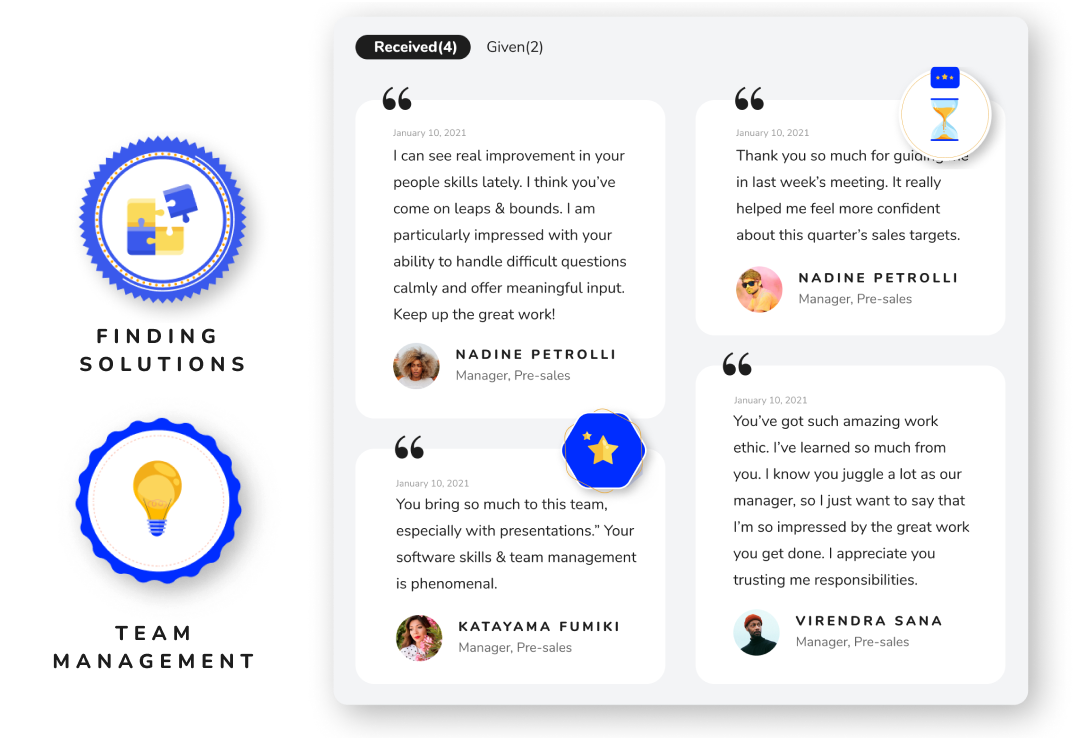Boost employee engagement with proper feedback and recognition
Effectively engage your people with precise and productive performance-based feedback and public appreciation
Practice two-way feedback
Enhance employee engagement effectively. Start the culture of ongoing both-way feedback to build trust between employees, foster growth and boost their morale
Alignment with goals and clarity
Reinforce individual alignment with key business goals and set clear work expectations with valuable feedback
Send performance-oriented feedback
Share constructive and personalized feedback with your colleagues and managers to help them optimize their performance and achieve their OKRs
Encourage positive work culture
Support open peer-peer employee recognition to make your people feel appreciated and respected
Tools to make the most of employee feedback and recognition

Request feedback from leaders
Improve your performance by asking for specific
, constructive, and
ongoing feedback from your leaders

Send feedback on the go
Share feedback conveniently among your
team with the JOP mobile app

Use achievement badges
Recognize and motivate your team members in
real time with JOP’s
customized achievement
badges

Feedback history
Grow as a professional by addressing the
consolidated feedback and
reviewing your
progress track





















